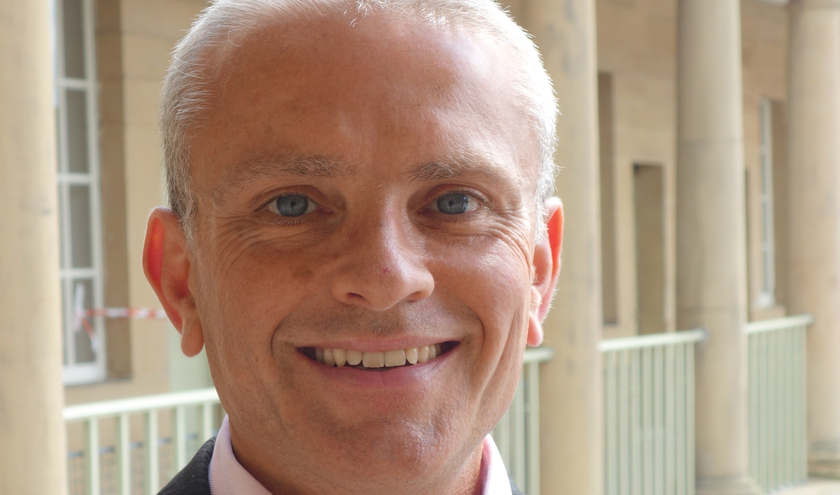Local government has rarely – if ever – operated in calm waters without pressure or flux. Every generation of officer and councillor can point to periods where the demands felt overwhelming, the resources insufficient, and the political context unforgiving. Today is no different.
From rising service demand matched by stretched budgets, workforce pressures, community tensions, and political turbulence, it would be easy to view the situation as unremittingly bleak. But to work in local government is to hold two perspectives at once: to be realistic about the scale of the challenge, and yet to be an optimist about what can be achieved.
This is not a naïve and Panglossian act of boosterism, but is what I would call realistic optimism. It is about recognising constraints without being defined by them, about seeking the glimmers of hope and building on them. It is this mindset that sustains our work and enables us to continue making a difference.
Reform of the wider public service landscape is another area where the Government's ambition is clear but the detail less convincing. The push for local government reorganisation, the drive for further devolution, and the exploration of neighbourhood health models all point to an understanding that communities need to be empowered and services joined up. But the pace of change is uneven, and often disjointed.
If history teaches us anything, it is that local government adapts. Our strength lies in our ability to face challenges squarely, to innovate under pressure, and to hold fast to the purpose that drives us: improving the lives of people in our places.
There are areas where progress is possible if we are bold enough to pursue it. Solace has long called for action across several fronts where, after years of feeling like we were shouting into a void, we now see some signs of welcome action from Government.
Standards is one such area. We know that good governance is essential to the health of local government, yet the current system does not help create the right cultures and conditions for that to flourish. Strengthening standards is not about bureaucracy — it is about enabling high standards of public service, integrity, transparency, and accountability among officers and elected members so councils can succeed, for the benefit of their residents. We await the Government's response to its consultation on this issue with bated breath.
Our workforce is another critical priority. Government has acknowledged the scale of the challenge, but signalling recognition is not enough. The reality is that without meaningful investment in skills, development, and wellbeing at all levels, we cannot expect our staff to continue delivering under ever-mounting strain, nor will we attract and retain innovative, capable and agile leaders who can successfully chart a course through this highly complex policy landscape. Local government is powered by people, and if we want resilient services and places, we need resilient workforces.
On finance, the Government's recent proposals to provide local authorities with greater certainty and stability, combined with the fair funding review 2.0, are a step in the right direction. But without full-throated reform, including council tax, our funding system will remain flawed; the fundamental issues of fairness, sufficiency, and sustainability remain insufficiently unresolved.
Reform of the wider public service landscape is another area where the Government's ambition is clear but the detail less convincing. The push for local government reorganisation, the drive for further devolution, and the exploration of neighbourhood health models all point to an understanding that communities need to be empowered and services joined up. But the pace of change is uneven, and often disjointed.
Top-down restructuring alone will not deliver better outcomes. True reform will only succeed if it harnesses the knowledge and capacity of local leaders, embeds collaboration across systems, and places communities at the heart.
As President of Solace, I am clear about the values that must underpin our work with government: place, people, purpose, and equity. These are not abstract concepts. They are the anchors of effective local leadership.
Place — because councils are the stewards of unique and distinct localities, shaping environments where people can thrive.
People — because our staff, residents, and communities are at the heart of all we do, and effective leadership matters.
Purpose — because leadership requires clarity about the profound difference we are here to make to peoples' lives, beyond managing short-term pressures.
Equity — because fairness and inclusion are essential to legitimacy and trust.
If government can share and embrace these values, we will have a stronger basis for partnership and for the kind of reforms that genuinely improve lives.
That is why I am looking forward with genuine optimism to this week's Solace Summit in Leeds. At a time when the pressures on local government feel relentless, Summit offers space for reflection, connection, inspiration, a time for solace in the essence of what is meant by that word.
It is an opportunity to be honest about the challenges, draw strength from each other, share innovation that is working, and imagine what we can do if we are braver and bolder.
The conversations we will have at Summit will not provide instant fixes to the challenges we face. But they will remind us that local government is not defined by its constraints, but by its capacity to adapt, to innovate, and to lead. That has always been our story, and it remains our hope for the future.
Robin Tuddenham is Solace president, and chief executive, Calderdale MBC


